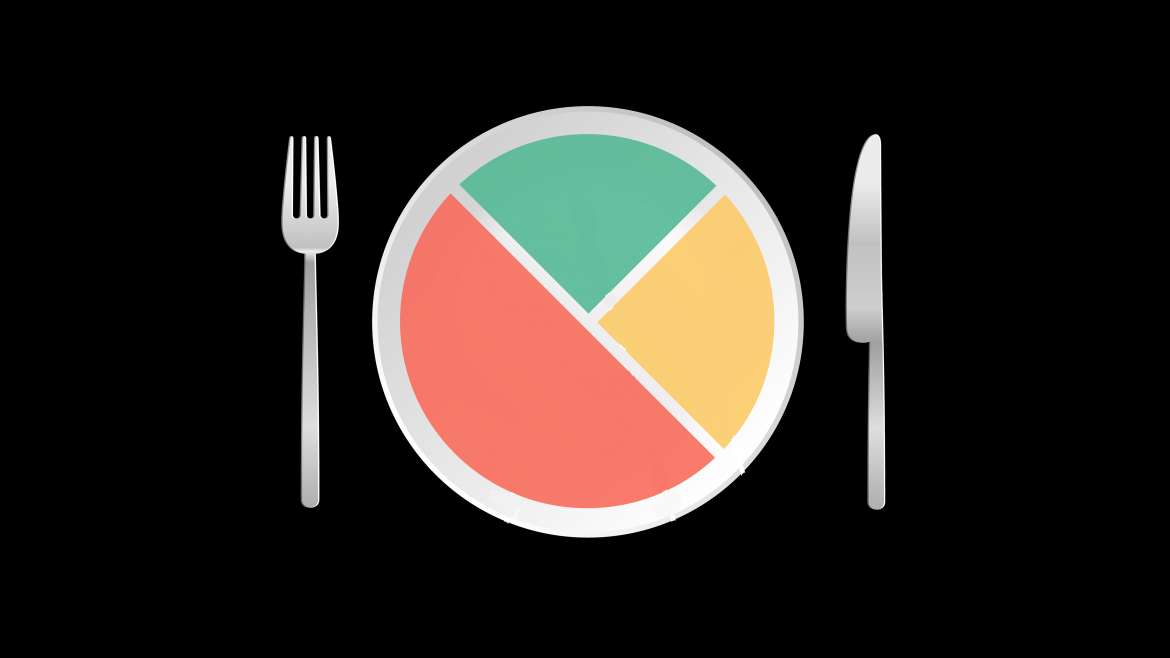After I talked about the best protein carb and fat sources for general health in my last post, you probably also want to know how much you should consume of each.
The ratio of the three macronutrients in your diet is called your macronutrient split. A proper macronutrient split is important because depending on your goal you will need more of one macronutrient than you will need another.
Protein Needs For Ideal Health
Let’s start with the most important macronutrient: protein. How much protein do you need to ensure long-term health? We know that everybody needs some protein, but how much is enough?
This question is tricky because it raises another one. Enough for what?
In my fitness and muscle building courses, I usually recommend fairly high protein diets, to ensure optimal muscle growth. For that, a range of 0.8 to 1 gram per pound of bodyweight would be optimal.
But if you are talking about the average person who might be active but with a smaller focus on building muscle, your protein needs are a lot lower. Here a minimum of around 0.3g of protein per pound of bodyweight per day should be maintained. But since this value only translates to about 40g a day for most people it shouldn’t be a problem for you to meet. Again this is only the minimum amount and going over is not a problem.
In fact, I recommend shooting for a slightly higher value even if you aren’t looking to build muscle, because of the benefits of high protein foods in regards to weight loss and satiety. Somewhere around 0.4 – 0.5 grams per pound of bodyweight per day would be a good value.
This is especially true if you are a vegan or vegetarian because plant-based proteins are generally digested less efficiently. This means your body will be able to absorb less protein from the same amount of food if it comes from plants instead of animal products.
Fat Needs For Ideal Health
In order to maintain your general health and fitness, you need only around 0.3 grams per pound of fat-free mass per day. Here, “fat-free mass” is everything in your body that isn’t fat, e.g. muscle, water, and bone. This translates to roughly 15 to 20% of daily calories for most people and is a target value you should not undercut.
Can you go higher (or even a lot higher) with your fat intake?
It depends.
Many diets have upper-fat intakes of around 35% of total calories, but there are also a few that go even higher. For example, some low carb diets like the ketogenic diet will have you consume most of your daily calories through fat. If you follow such a diet, make sure to always choose the right fat sources.
Trans fats are definitely a health risk in excess and saturated fats should probably also be watched. However, if you follow a diet high in unsaturated fats, there’s no reason to worry about its health effects. In fact, the traditional Mediterranean diet illustrates the health benefits of monounsaturated fats, even when they are consumed in large quantities.
Carbohydrate Needs For Ideal Health
And lastly carbohydrates. In theory, carbs are not essential for our survival. This means there exists no minimum carb intake you need to consume every day. However, eating carbs does come with some benefits when done right.
Carbs are the most efficient energy source in food and therefore great for physical exercise. This is why I recommend a medium to high carb diet in my muscle building and fitness courses. Next, the fiber found in many forms of carbohydrates like whole grains, fruits, and vegetables aids in the digestion of other foods and keeps your GI tract healthy. Of course, in addition, these fruits and vegetables also come loaded with vitamins and minerals.
Therefore as long as you stick to quality carbs it does make sense to consume a minimum intake of around 0.3g of carbs per pound of bodyweight per day. Going over this value will also be no problem again as long as you stick to quality complex carbs. Don’t overeat on simple sugars and candy; those will definitely hurt your health can lead to weight gain because of their high amount of calories.



